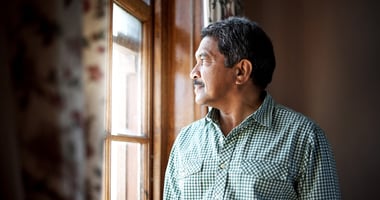Study Shows Value of ECT Combined With Medication in Treating Geriatric Depression
 |
The multicenter Prolonging Remission in Depressed Elderly (PRIDE) study found ultrabrief ECT (which uses shorter pulses than conventional ECT with reduced side effects) was effective in both acute and maintenance treatment of depression when combined with medication. In the long term, the use of both therapies produced more sustained improvement than medication alone.
In the first phase of PRIDE, 240 patients aged 60 and over with depression were enrolled to receive three ultrabrief ECT sessions a week and daily venlafaxine. During this phase, 61.7% of patients met remission criteria, with an average time to remission of about 2.5 weeks (7.3 ECT sessions).
In the second phase, all remitters were randomized to receive either continued ECT as needed along with medication (venlafaxine plus lithium) or medication only. After 24 weeks of treatment, the ECT plus medication group showed significantly lower depression scores on the Hamilton Rating Scale for depression than the medication-only group, with no statistical differences in their cognition scores.
“The clinical implications of these findings are that continuing ECT after remission, rather than abruptly stopping a course of ECT, is likely to be beneficial in sustaining mood improvement for most patients and that clinicians should be willing to prescribe additional ECT if patients begin to show symptom reemergence,” the authors wrote.
To read more about this topic, see the Psychiatric News article “ECT Said to Be Valid Alternative For Elderly Patients With Depression.”
(iStock/AlexRaths)





